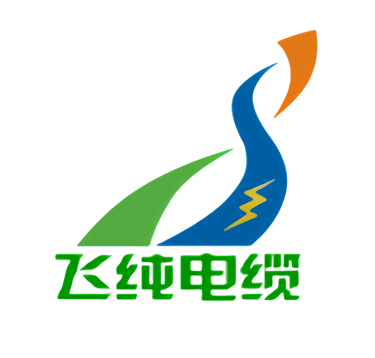HD Korea Shipbuilding and Cochin Shipyard Forge Strategic Maritime Partnership, Supporting India’s Expanding Shipbuilding Sector
HD Korea Shipbuilding & Offshore Engineering partners with Cochin Shipyard to advance ship design, productivity, and training in India’s maritime sector. The collaboration aligns with India’s maritime growth plans and highlights the importance of specialized cables in modern shipbuilding.
NEWS
7/8/20253 min read


South Korea’s HD Korea Shipbuilding & Offshore Engineering (HD KSOE), a subsidiary of HD Hyundai, has established a strategic partnership with Cochin Shipyard Limited (CSL), India’s largest state-owned shipbuilder, to drive long-term collaboration in vessel construction. This agreement signifies HD KSOE’s comprehensive entry into the Indian market and reflects HD Hyundai's broader ambitions to expand its global shipbuilding presence.
Under the newly signed memorandum of understanding, HD KSOE and CSL will collaborate across multiple areas of the shipbuilding value chain. Their joint efforts will cover ship design optimization, streamlined procurement support, advanced technical cooperation aimed at enhancing productivity, and workforce development to uphold world-class shipbuilding standards.
A key aspect of this partnership includes the exploration of new shipbuilding orders within both the Indian domestic market and international markets. The cooperation aligns with India’s strategic maritime frameworks such as the Maritime India Vision 2030 and the Maritime Amrit Kaal Vision 47. These government-led initiatives seek to accelerate maritime sector development and foster innovation across India's ports and shipyards.
India's shipbuilding sector has grown dramatically, rising from $90 million in 2022 to over $1.12 billion in 2024. The Indian government continues to invest in this growth, including the creation of the $2.9 billion Maritime Development Fund (MDF) in February 2025. While MDF mainly supports the acquisition of new vessels, it also contributes to green shipping initiatives and the modernization of port infrastructure.
In March, India announced an additional $23.8 billion investment package to boost the country’s shipbuilding and maritime trade capacity. This funding aims to build approximately four million gross registered tons (GRT) of vessel construction capacity. In tandem, the government adjusted its Shipbuilding Financial Assistance Policy (SBFAP) and updated the Right of First Refusal (RoFR) framework, ensuring that Indian-built, Indian-flagged, and Indian-owned vessels receive preference in public sector contracts.
In a further boost to the sector, the Ministry of Ports, Shipping and Waterways (MoPSW) recently launched the Sagarmala Finance Corporation Limited (SMFCL), the first non-banking financial company dedicated to maritime development. SMFCL will finance projects in sustainable shipbuilding, logistics enhancement, and cruise tourism, supporting India's maritime ambitions.
Meanwhile, South Korea maintains its position as the world’s second-largest shipbuilding nation, following closely behind China. By late 2024, South Korean shipyards secured 29% of global newbuilding orders, totaling approximately 1.14 million compensated gross tons (CGT). In March, the South Korean government unveiled plans to invest $152.89 million in the construction and conversion of 81 eco-friendly vessels. This initiative encourages small and medium-sized shipping companies to adopt alternative fuels such as LNG and electric propulsion, contributing to global decarbonization efforts.
As shipbuilding technologies evolve, the role of advanced electrical systems becomes increasingly critical. Modern vessels—whether container ships, tankers, or offshore service units—rely heavily on durable, marine-grade cables that ensure safe and efficient power distribution, control systems, and communications. In harsh maritime environments like those encountered in shipyards and at sea, low-voltage flexible rubber cables, such as reeling cables and power control cables, are essential. These cables must withstand extreme mechanical stress, frequent movement, saltwater exposure, and wide temperature fluctuations, ensuring uninterrupted operations during vessel construction and throughout their operational lifespan.
Selecting the right cable solutions, such as high-flexibility rubber sheathed cables compliant with international marine standards, plays a pivotal role in achieving reliability and safety on modern vessels. Cables designed for cranes, hoisting systems, and deck machinery ensure seamless energy transfer during complex shipyard operations, contributing to higher productivity and reduced downtime.
This growing focus on cable reliability parallels the shipbuilding industry’s drive for greater efficiency and sustainability, ensuring that every component—down to the wiring systems—supports the vessel’s long-term performance.
Feichun Cable is committed to supporting global maritime projects with high-performance cable solutions engineered for harsh port, shipyard, and offshore environments. With a comprehensive product range that includes flexible power cables, control cables, and reeling cables, Feichun Cable helps shipbuilders and port operators meet the demands of modern marine applications. Our dedication to quality, compliance, and innovation enables customers to enhance safety, reliability, and efficiency across their maritime operations.
We hope you enjoyed this article. To explore a wider range of topics and stay informed, head over to our Feichun Cable Articles for fresh blog content and news updates.
